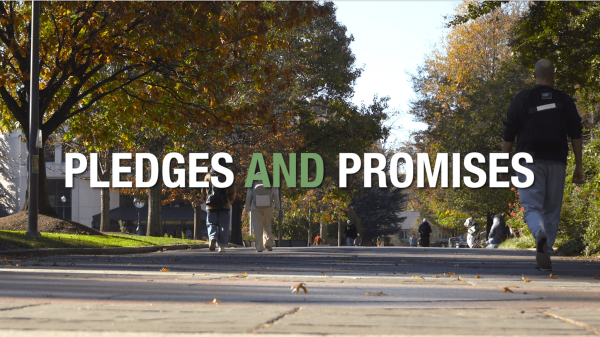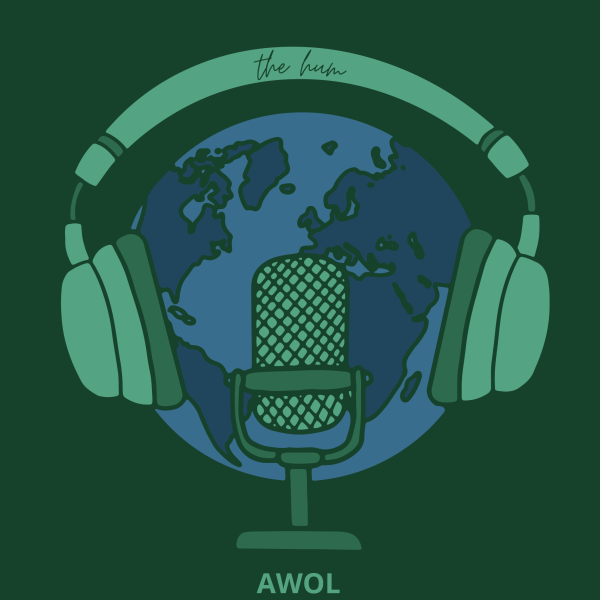Professor Profile: Ericka Menchen-Trevino on Redefining Tech with Informed Consent
Ericka Menchen-Trevino is an assistant professor in the School of Communication at American University. Her research and teaching interests lie at the intersection of political communication and digital media studies, with a focus on methodology. Before coming to work at AU, Ericka was an assistant professor at Erasmus University in Rotterdam in the Netherlands. She has worked as a research lab manager, an ethnographic research consultant, a grant writer, a technical writer, a web designer, and a technical support representative. Currently, Ericka is developing a research software called Web Historian. AWOL sat down with her to discuss the importance of informed consent and the ways citizens receive and process information online.
How did you get your start in media studies?
Well I was actually interested in the internet and digital things since high school, which was when the internet began, so that was an exciting time when you could chat with people from all over the world. So I did that and I had a website in 1995, so I’ve had a website for 20 years. …
I grew up in Cincinnati, Ohio and I did my undergrad at Loyola University in Chicago where I majored in cultural anthropology, which seems different from what I’m doing now but there’s still some continuity. Then I got my masters in digital media and communication studies at the University of Illinois at Chicago. So I expanded from ethnographic work into more content analysis and interviews during that process, and then I did my PhD at Northwestern where I worked in a survey research lab and a behavioral research lab. There, I co-developed some software with a programmer for my dissertation where I looked at digital traces as well as survey data and interviews with the same individuals around the 2010 midterms in Illinois.
That was my first experience sort of co-developing a software product — that was called Roxy, a research proxy. So I published an article about that. Then I got a job at Erasmus University in Rotterdam in the Netherlands and that’s where I thought of the idea for the Web Historian project. The Roxy approach to gathering data relied on a proxy server which back in 2010 could gather almost everything that you did online, but now you notice that almost all of the websites you go to start with HTTPS, which breaks that particular system. So I needed a new way to go about it and one of the questions about data from Roxy was, “Do people behave differently when they know they’re being watched?” And you can’t actually answer that question directly, but one of the benefits from [Web Historian] is that with collecting web history data, the data was created before the person was in a study, so their behavior is not influenced by the study itself.
What is Web Historian? And what does it do?
The impetus for creating Web Historian was that for social science, it’s really important that we study digital traces and the sort of digital footprints that people make. That is the way world works today. So I think it’s really important that we collect this information to the extent that we can, but we also have to do it in a different way than what corporations do. The general mode of operation is you get this legalistic form and you don’t understand it and you have no real options about what data you’re providing to [corporations].
So [Web Historian] is sort of a different approach to informed consent, and gathering digital traces for research purposes. And basically it visualizes data that’s already on your computer, which is your web browsing history. You may not realize it’s already on your computer, so it’s educational in that regard, and it’s also educational in the fact that your browsing history is not only on your computer, it’s also on your internet provider’s computer, and all the websites you visit have pieces of that information as well. So I think the educational component is important.
In terms of research data, the goal is to collect trace data in a way that the informed consent process is actually informative and consensual, which is more radical than it sounds. One of the projects that I’m doing his summer is trying to understand more which of the visualizations are more informative to people and what kind of information are they getting from these visualizations. I can tell you that seeing the data is more informative than not seeing it at all. Which is a different approach you could take and has been taken, but I would argue that is [harmful to the user], because I could ask you, “Would you consent to providing your web browsing history for my research project?” And in theory you could say yes, but that would not be informed consent unless you really knew what I was asking for.
How did your time in the Netherlands influence your research?
There’s an interesting policy over there which is the cookie policy where every website you visit has to tell you whether they use cookies or not. People just totally ignore this notification because you get it 20 times a day. It’s meant to raise awareness of privacy — I’m not sure if it does or not — because as an EU rule it’s implemented differently in different countries. So in the Netherlands it just says, ‘Our websites use cookies, is this okay, yes or no?’ but in ‘Germany it was, ‘Our websites use cookies do you want to opt out and still use the website?’
In terms of thinking about how surveillance practices differ in different countries, it was pretty interesting because in the Netherlands, it was perfectly okay to use BitTorrent to download copyrighted movies or music, whereas in the U.S. you could get sued for a million dollars [for copyright violations]. Whereas in Germany, if you use BitTorrent, they would send a letter to your house and tell you about the things you have been downloading and ask you to stop violating copyright. There’s a lot of context about how the Internet is really different in different places. I’m also interested in international comparative work. I would like to do that in the future with Web Historian and other projects, but I’ve done some comparative work with Israel and I’m currently working on a project that’s comparing how people search for populist politicians in the U.S., Italy and Brazil.
Do you feel that being a woman in a data-driven field has influenced you?
When I worked answering tech questions at my college as an undergrad, I would sit at a desk to answer technology questions, and there was another another desk for the print-outs. If I was sitting at my desk and there was a male getting the print-outs people would ask him the tech questions.
In terms of my current work, I went to a panel at a conference on feminist data visualization and so I started thinking about what that would mean and how that relates to what I do. So I’ve been thinking about that and I don’t have anything out on that right now, but I think it’s so important to have different perspectives in the field. I think that the approach that I take to research, using multi-method research, that’s partly just my background of having experience in the qualitative and quantitative side of things, but I think the path itself was influenced by gender in some ways. Probably in more subtle ways, but it definitely had an impact. [In terms of moving forward] I think being visible as a female in the field is an important thing so that people see people from different backgrounds doing these things.
Jessica Wombles is a senior studying communication studies and minoring in international relations.







